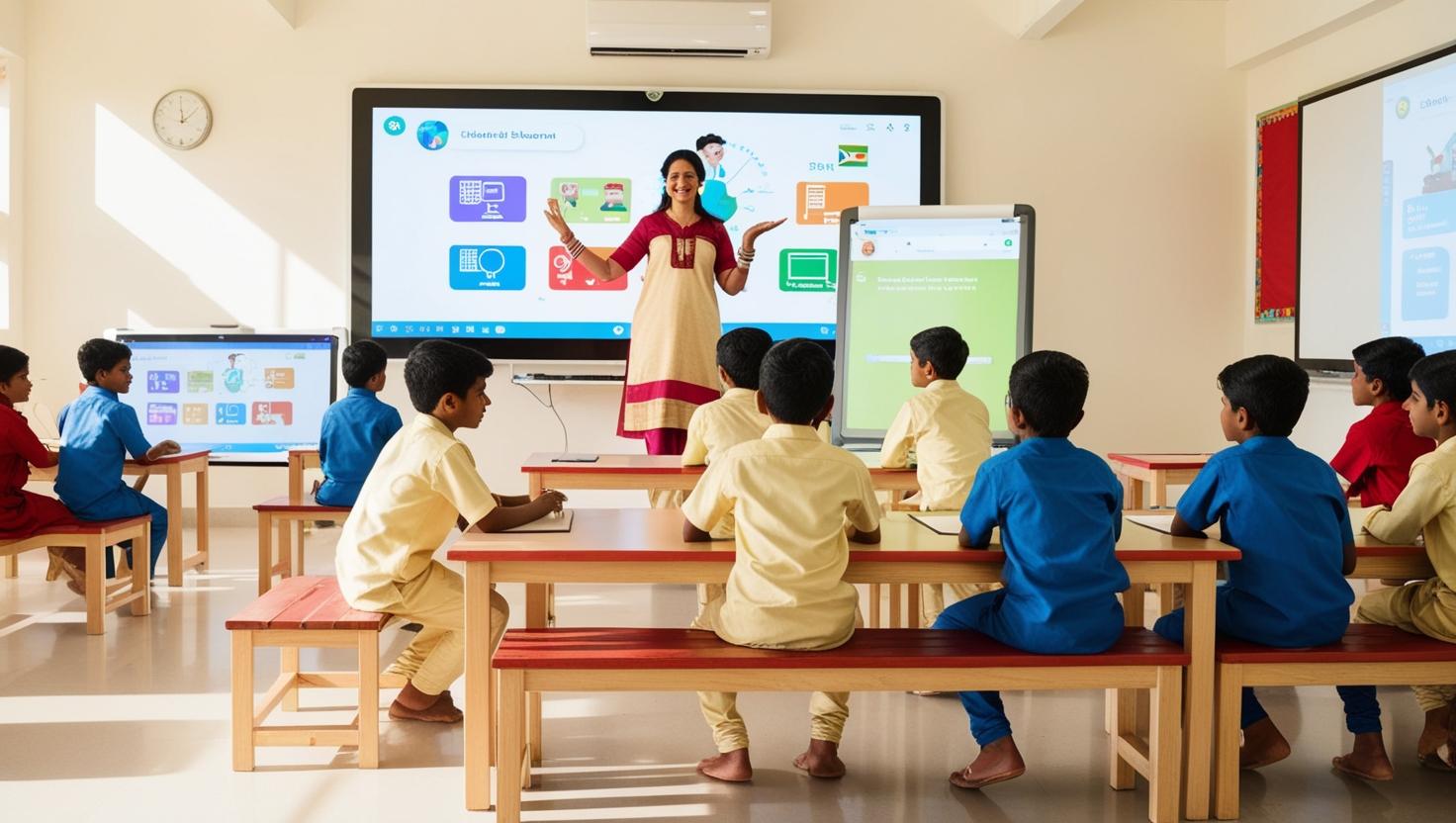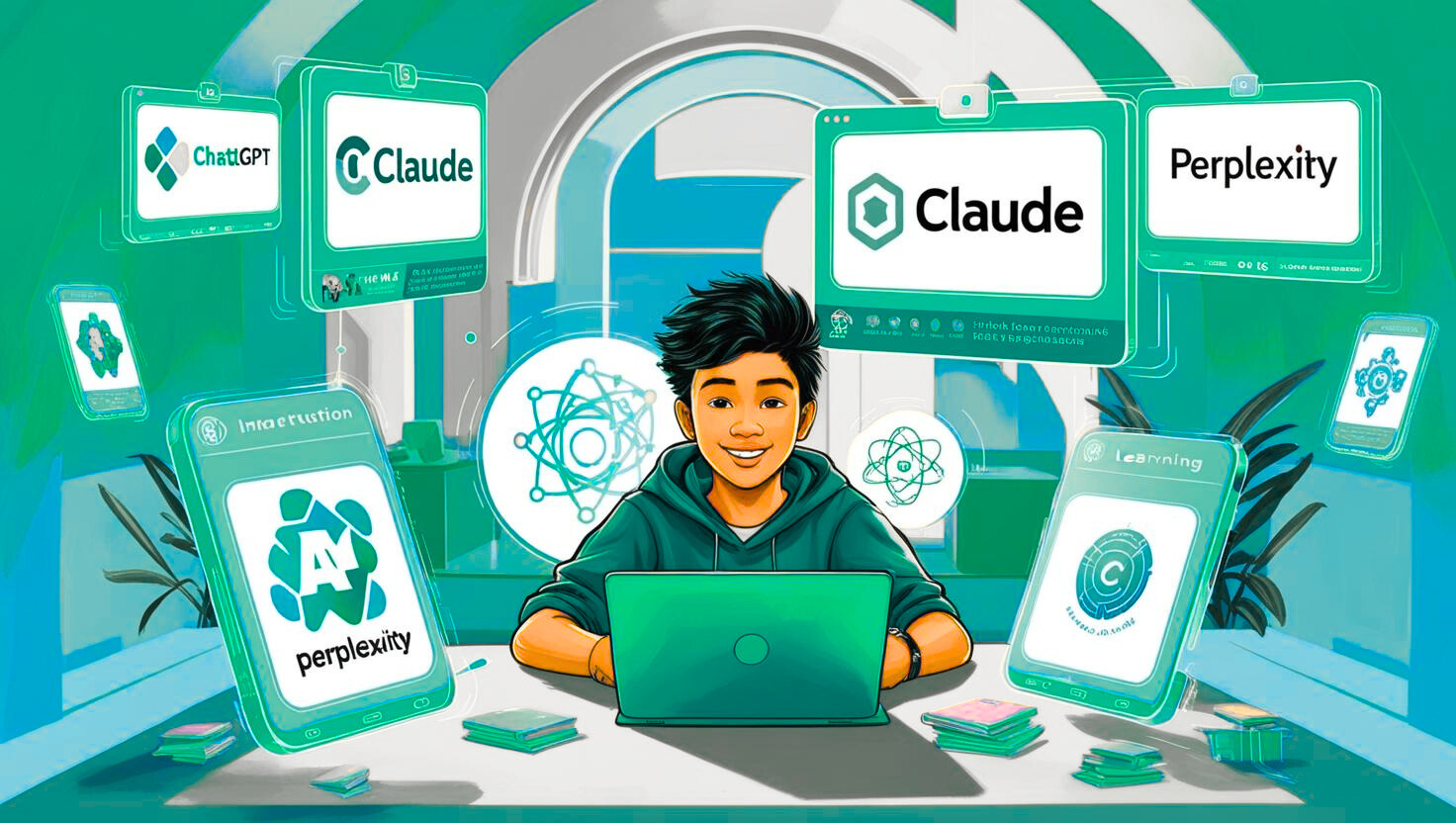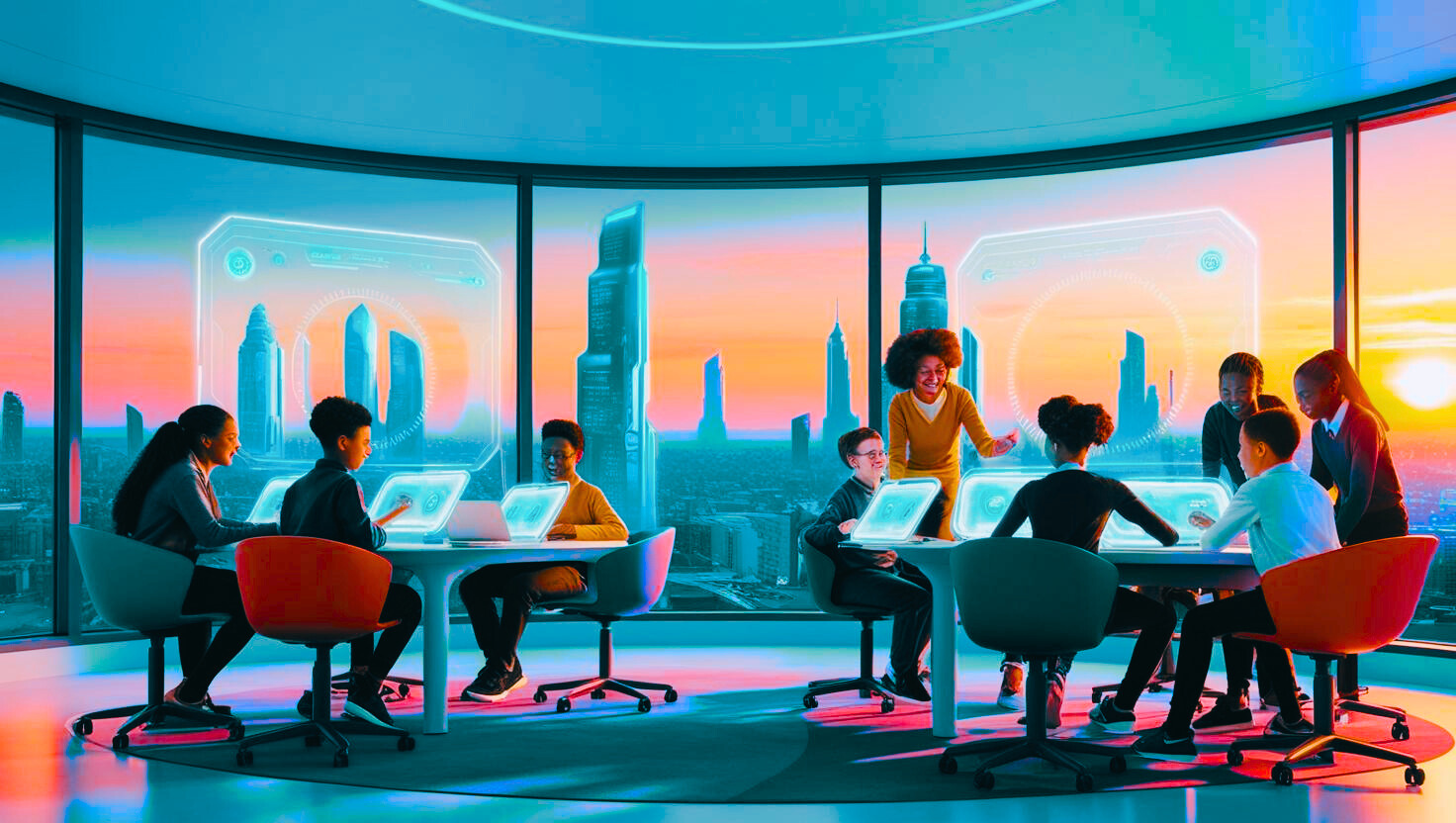What is the role of AI in education and Student's Life?

What do you know about artificial intelligence (AI)?
Here is a simple way to understand this topic. Basically Artificial Intelligence refers to systems or coding machines which are not human that can perform complex tasks that typically humans take longer time. These tasks include learning, problem-solving, decision-making, understanding language and even creating an image. AI systems use algorithms and data which is there in google to mimic human thoughts, making them incredibly effective in personalizing experiences and automating complex tasks.
How AI in the classroom changed education?
This is just the start of the new innovation in education. Many schools across the globe are already embracing AI-powered tools and new technologies to help the way in which students learn and teachers teach them. Smart classrooms are modern technology with interactive boards, voice controlled assistants, and intelligent learning platforms that help students learn very effectively. This shift is not just about modern technology, but about making learning more easy, interactive and efficient.
Do you know what is the role of ai in education? Many AI tools surprisingly identify that a student is struggling with a concept and provide additional resources to help them. Teachers, on the other hand, can use AI-driven insights to track individual student performance, then they can pinpoint areas for improvement, and even improve student outcomes.
Smart Boards and Digital Classrooms

Classrooms today are transforming into interactive places with advanced technology like smart boards and digital screens. Here's how they are moving towards artificial intelligence in education:
-
Very Interactive and Futuristic Learning Environment
Smart boards allow students to actively participate in lessons by interest in visual learning with touchscreens, images, and answering questions directly on the board. This type of approach keeps students engaged and helps them better understand difficult concepts. -
Multimedia style of learning
AI Learning includes Lessons which are learned with videos, animations, and simulations that make learning more fun and enjoyable by them. For example, a science lesson can include 3D models of the solar system. -
Collaboration Opportunities
Multiple students can use smart boards simultaneously for group activities like brainstorming, problem-solving, or creating presentations. This helps in teamwork and communication skills while making classroom sessions more fun and enjoyable. -
Better Classroom Management
Teachers can use smart boards to explain everything that is important like schedules, assignments, and classroom rules. This improves organization and ensures that students stay focused during lessons.
AI-Powered Learning Apps
AI educational apps and websites are reshaping how students learn by offering personalized assistance and resources:
-
Customised Learning Experience
These websites use AI to analyze individual study patterns and identify strengths and weaknesses. Based on this data, they provide customized recommendations, practice questions, and tips to improve weak areas. -
Engaging Content Delivery
Many websites use innovative AI models like MathGPT to explain complex problems with solving it in seconds. For instance, a student who is a cricket lover might receive math lessons context with cricket examples, making learning more relatable. -
Instant Doubt Solving
AI enables students to upload images of their questions and receive instant step-by-step solutions from experts.
Instant Homework Help
AI tutors and bots have made homework assistance available anyhour:
-
Sometimes students get doubts while doing homework at night example when their teachers or tutors are not available AI is there for helping them in doubts.
-
AI-powered apps or bots help students anytime.
-
It helps like having a friend who’s always awake and ready to help, without getting irritated!
Online Exams & Smart Grading
AI is streamlining examination processes:
-
Efficient Grading Systems
AI tools evaluate exam papers quickly and accurately, saving teachers time while ensuring fair assessments. This allows educators to focus more on teaching rather than administrative tasks. -
Conducting Tests
AI can create personalized tests based on a student’s learning progress, ensuring that exams challenge them appropriately without overwhelming them.
Daily Student Life with ai learning

AI in the classroom helping students manage their studies and career planning effectively:
-
Study Planning Made Simple
AI apps generate personalized timetables based on a student’s schedule and priorities. They also send reminders for tasks, ensuring efficient time management. -
Career Guidance Tools
AI platforms analyze a student’s interests and suggest suitable career paths. They also provide insights into trending job opportunities in emerging fields like AI. -
Stress Reduction
With AI assistance, students can learn at their own pace without feeling pressured to compare themselves with others. This personalized approach boosts confidence and reduces anxiety around studies.
Advantages of AI in Education
The integration of ai in the classroom offers numerous benefits of artificial intelligence :
-
Personalized Learning: AI ensures that each student receives content tailored to their needs, improving learning outcomes and engagement.
-
Enhanced Creativity: AI encourages students to think creatively and develop new ideas by providing interactive and dynamic learning experiences.
-
Helpful Insights: AI helps identify students who might be struggling and provides insights.
-
Reduced Teacher Workload: AI automates administrative tasks, allowing teachers to focus more on teaching and mentoring.
The Future of AI in Education

As AI continues to evolve, we can expect even more innovation in education. virtual reality and augmented reality will become more important, offering students immersive learning experiences that simulate real-world environments. AI will also play a crucial role in bridging the digital divide by making quality education accessible to more students across India.
Imagine stepping into a classroom in the year 2050. The walls are no longer lined with whiteboards or posters; instead, they transform into interactive screens displaying virtual worlds. Students are welcomed by AI-powered tutors who know their strengths and weaknesses better than any report card ever could. This is not science fiction. It's the future of education, where technology and creativity redefine how we learn.
Personalized Learning Experiences
-
AI-Powered Tutors: Artificial intelligence will act as personal educators, analyzing students’ progress in real-time and tailoring lessons to their unique needs. Every student will have a custom curriculum designed to maximize their potential.
-
Daily Assessments: Grading systems will evolve into diagnostic tools that unlock new levels of learning rather than assigning letter grades.
-
Neuroscience Integration: Brain-computer interfaces will monitor focus and adjust lesson difficulty to keep students engaged.
Technologies in Classrooms
-
Virtual Reality (VR): Textbooks will become obsolete as students explore historical events, conduct virtual science experiments, or even travel to Mars. Everything is possible through VR headsets.
-
Augmented Reality (AR): STEM subjects will become practically done as AR allows students to dissect virtual organs, analyze chemical reactions, or manipulate complex machinery.
-
Learning in the Metaverse: Education will extend into shared virtual spaces where many students will join to interact as digital avatars, fostering collaboration and creativity.
We all know how stressful studies can be. But with AI, things are changing for the better.
It helps us learn smartly, save time, and focus more on understanding than just memorising. AI is not a robot to be afraid of – it’s like a digital friend who is always there to help. Let’s use this technology to grow, learn, and become future-ready!

Get In Touch
Your questions deserve expert answers Let's Talk
